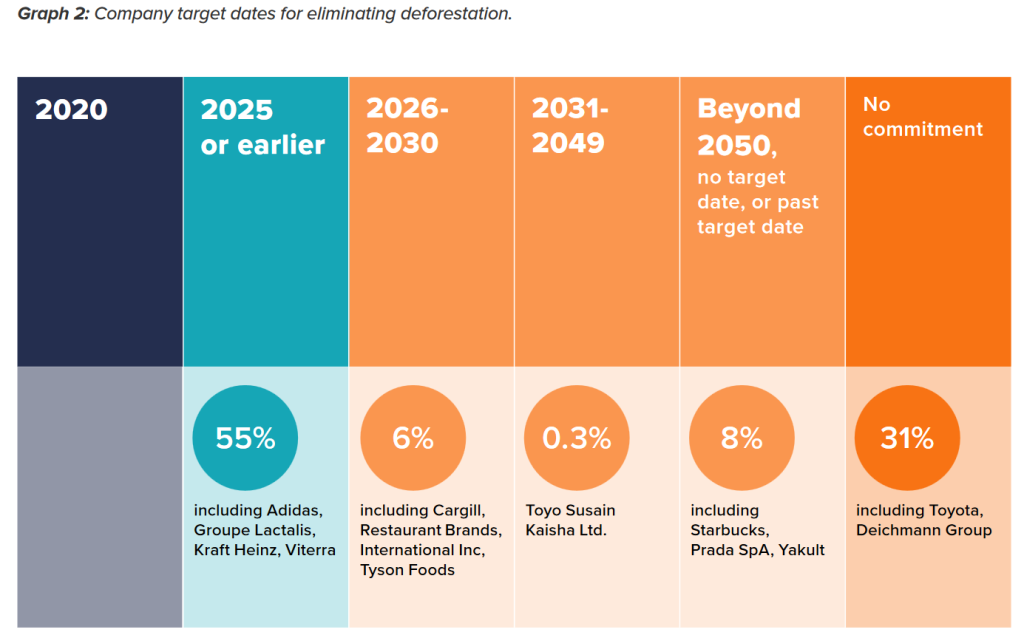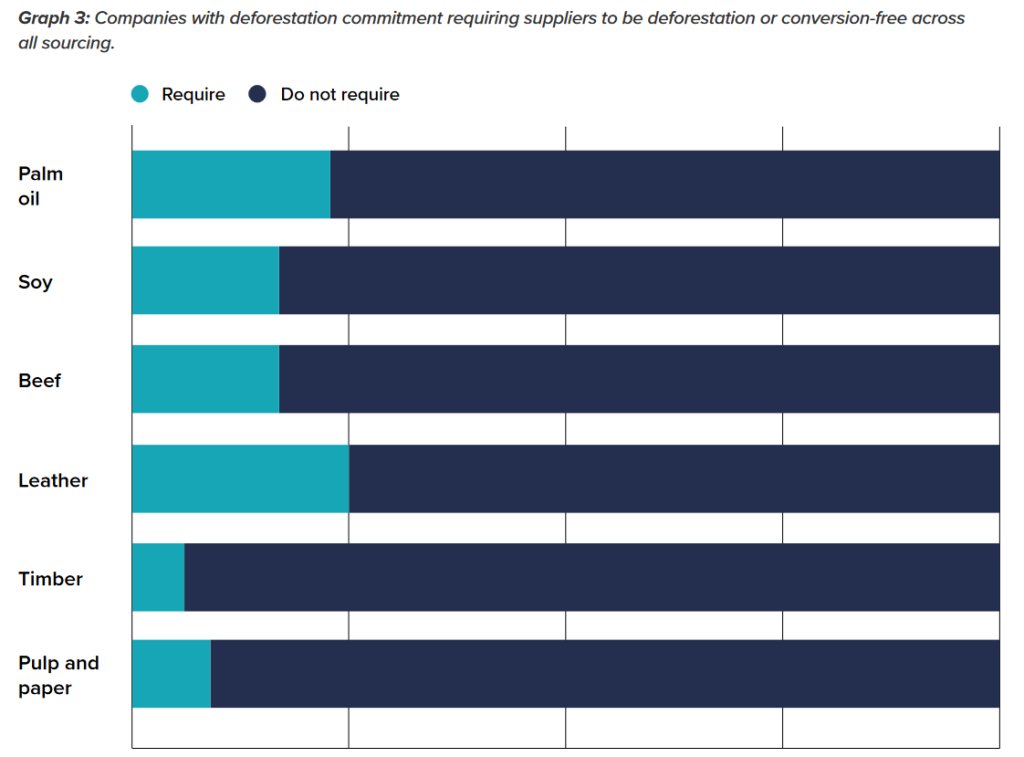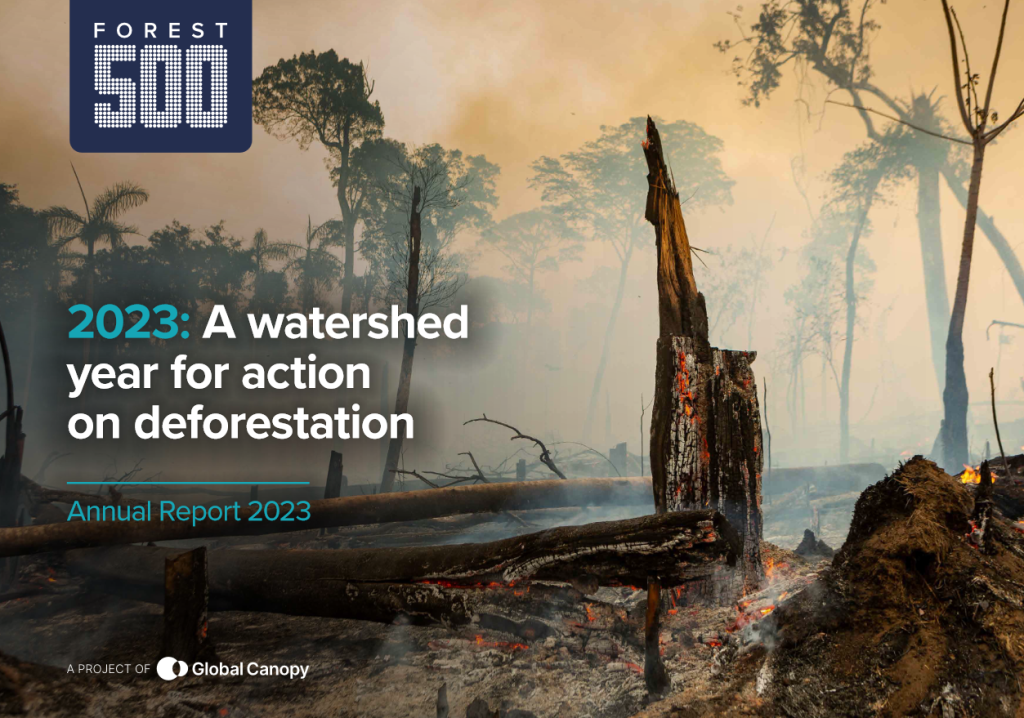The companies and financial institutions most exposed to and influential in tropical deforestation must act “long overdue” to establish commitments that will enable them to achieve deforestation-free supply chains and financing “by 2025 at the latest,” a report by the non-profit organization, Global Canopy, recommends.
According to Global Canopy‘s Forest 500 report, of the 350 companies and 150 financial institutions linked to tropical deforestation, 201, or 40%, have not established a single deforestation policy.
The companies analyzed are the most exposed to forest-risk commodities such as beef, leather, soy, timber, palm oil, and pulp and paper, which cause more than two-thirds of tropical deforestation.

Companies have made slightly more progress than the financial sector, according to Global Canopy. Of the 350 companies assessed, 100, or 29%, have made a deforestation commitment for all commodities tracked, while another 141, or 40%, have disclosed a deforestation commitment for at least one, but not all, of the highest forest risk commodities to which they are exposed.
According to the report, the 150 financial institutions assessed by Global Canopy provided $6.1 billion in financing to the 350 forest risk companies last year.
This includes $3.6 billion from 92 financial institutions that have no policy on deforestation. “The financial sector as a whole continues to lag woefully behind,” Global Canopy said.

You may also be interested in: What Sustainability Trends Can We Expect in 2023?
More data
Separately, more than 30 financial institutions representing around $8.7 trillion in assets pledged at the UN Cop 26 climate summit in 2021 to report on deforestation risk in all their investments.
The group also pledged to, by 2025, only finance clients that have met risk reduction criteria.
Deforestation commitments accelerated at last year’s COP 27, although the most tangible actions are likely to be driven by Brazil’s President Luiz Inácio Lula da Silva, who took office in January and significantly reduced deforestation rates in Brazil during his previous two terms in office, from 2003 to 2010.

Eva Zabey, CEO of environmental group Business for Nature, noted that action against deforestation must now be driven by regulation, rather than a voluntary approach.
Global Canopy also pointed to recent ambitious EU legislation, on which preliminary agreement was reached in December 2022, that will require companies to verify that certain forest risk products have not led to deforestation or forest degradation anywhere after the end of 2020.
Other jurisdictions should follow the EU’s lead, the nonprofit noted.
To read the full Global Canopy report, click here




